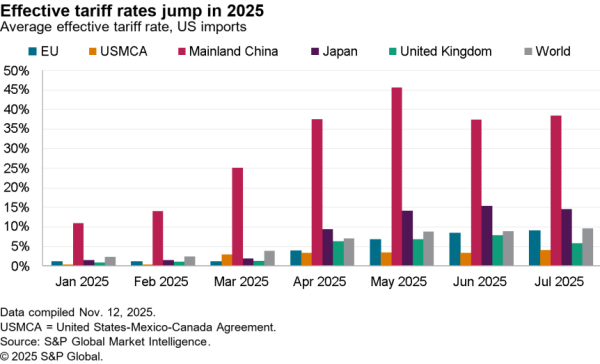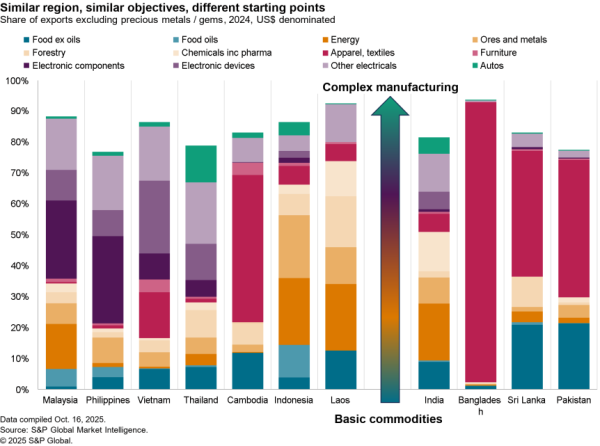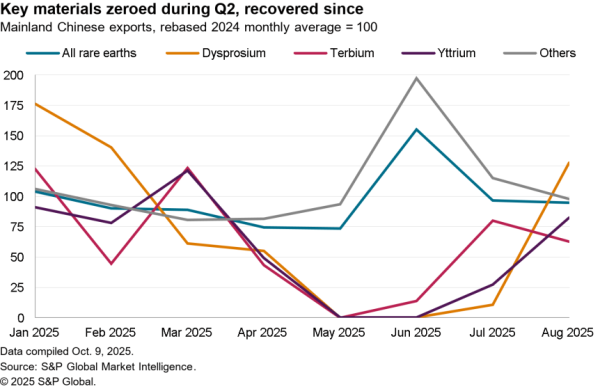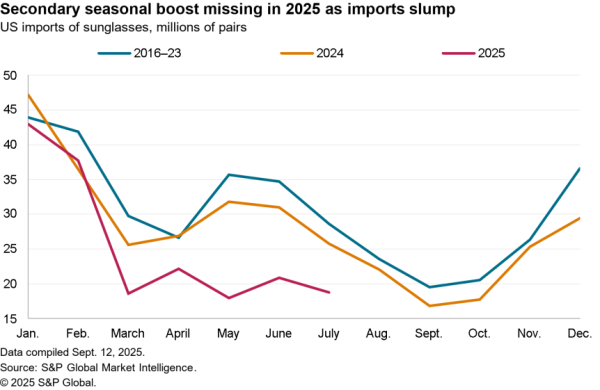One easy area of potential agreement in the ongoing NAFTA negotiations – which otherwise have struggled as outlined in Panjiva research of November 22 – may be updated rules regarding energy market access. When the original NAFTA was signed, Mexico stayed out of “ Article 605” requiring unfettered energy market access in terms of exports and investment. That was because the main oil company, Pemex, was fully state owned. A push towards energy liberalization since 2013 has led current President Enrique Pena Nieto to call for Mexico to sign up for 605, Reuters reports.
Mexico’s energy liberalization has been aimed primarily at the oil industry, and inclusion of that liberalization should prevent future governments from rolling it back. Panjiva data shows that Mexican exports of crude oil has fallen 1.1% annually over the past three years, led by Pemex. That’s been driven by a 6.0% annualized decline in shipments to the U.S., which accounted for 52.3% of the total, resulting from growing American shale oil production. The difference has been made up be increased sales to India, Europe and Japan.

Source: Panjiva
Mexico then imports the refined oil products including gasoline and other distillates ranging from jet kerosene to lubricants. These have far outstripped crude oil volumes, with gasoline imports having risen 16.7% annually for the past three years, and distillates by 26.3%. Over the past 12 months that has been driven by the steady deregulation of gasoline prices to reach international norms. Additionally, hurricane and earthquake disruptions to domestic production resulted in imports reaching a new high in the past quarter, with gasoline hitting a record in October.
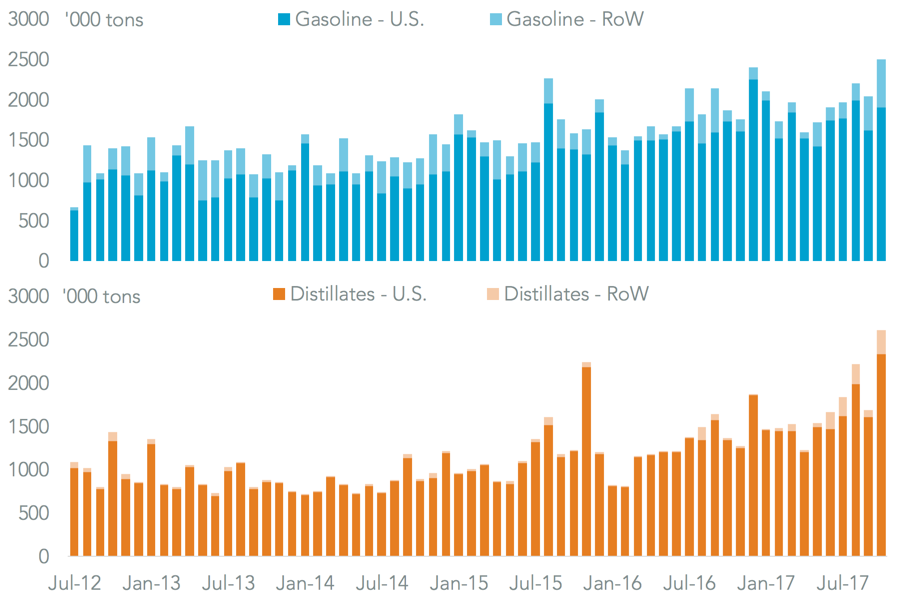
Source: Panjiva
The regulatory certainty provided by enshrining liberalization in NAFTA may also help secure potential investments in new natural gas import pipelines. These have been delayed by local opposition, Bloomberg reports, but once completed they will double import capacity. Mexican imports of pipeline gas from the U.S. jumped 82.6% in October on a year earlier, after reaching a new record in August.
However, a large portion would be used for liquefied natural gas exports, according to government plans that would involve retasking existing LNG import facilities for export. Such investments are significant, however, and require the sort of long-term regulatory certainty a reformed NAFTA could provide.

Source: Panjiva
